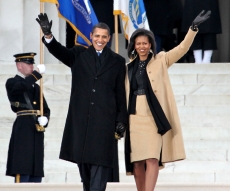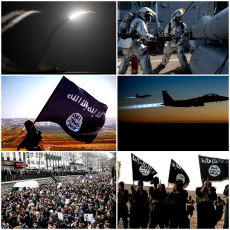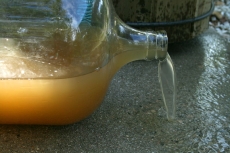The CPD Blog is intended to stimulate dialog among scholars and practitioners from around the world in the public diplomacy sphere. The opinions represented here are the authors' own and do not necessarily reflect CPD's views. For blogger guidelines, click here.

Discussing the legacy of the Obama administration in public diplomacy.

The U.S. State Department's new move to combat ISIS in the information wars.

The Flint water crisis and its impact on the U.S.' image.
Those who follow attitudes toward the West on the Arab street need to make room these days for nuance. As the daily televised drama of revolt in Libya and Syria makes plain, the desperate internal struggles, unleashed during the Arab Spring, still command center stage. As long as they continue, the United States, in particular, is likely to be viewed through the prism of these upheavals.
And how precisely is that?
In a week of tragic accidents, the WikiLeaks story may be the toughest one to bear, horrifying both for what it showed about the current state of war and what it says about the current state of our media environment. As most know, thanks to the whistle blowers at WikiLeaks, U.S. military video footage, purloined or leaked, showed up on the Internet last week, and revealed in chilling detail a U.S.
Along the gradient of power, there’s a possible mix of “soft” and “hard” varieties. The public diplomacy originating at the U.S. State Department is commonly associated with the “soft” power of peaceful persuasion and cultural appeal; the foreign information efforts at the Pentagon are often in the service of some tangible “hard” power goal. The mixing often takes place in conflict zones, where a variety of forces and actors are in play. So who decides the mix, and how?
Readers of this space know there’s been a recent flurry of public activity by those who set the course of U.S. communications efforts with foreign publics.
Veteran Canadian diplomat Daryl Copeland has been on the ramparts of diplomatic studies for several years now, advocating a kind of diplomacy he calls Guerrilla Diplomacy. Last week, at the International Studies Association convention in New Orleans, a panel of expert academics reviewed Copeland’s thesis and generally applauded his ideas.
Pages
POPULAR ARTICLES
-
March 22
-
February 23
-
February 22
-
April 1
-
April 11
-
March 4
-
March 19
-
April 4
Featured Blogger
Join the Conversation
Interested in contributing to the CPD Blog? We welcome your posts. Read our guidelines and find out how you can submit blogs and photo essays >.








